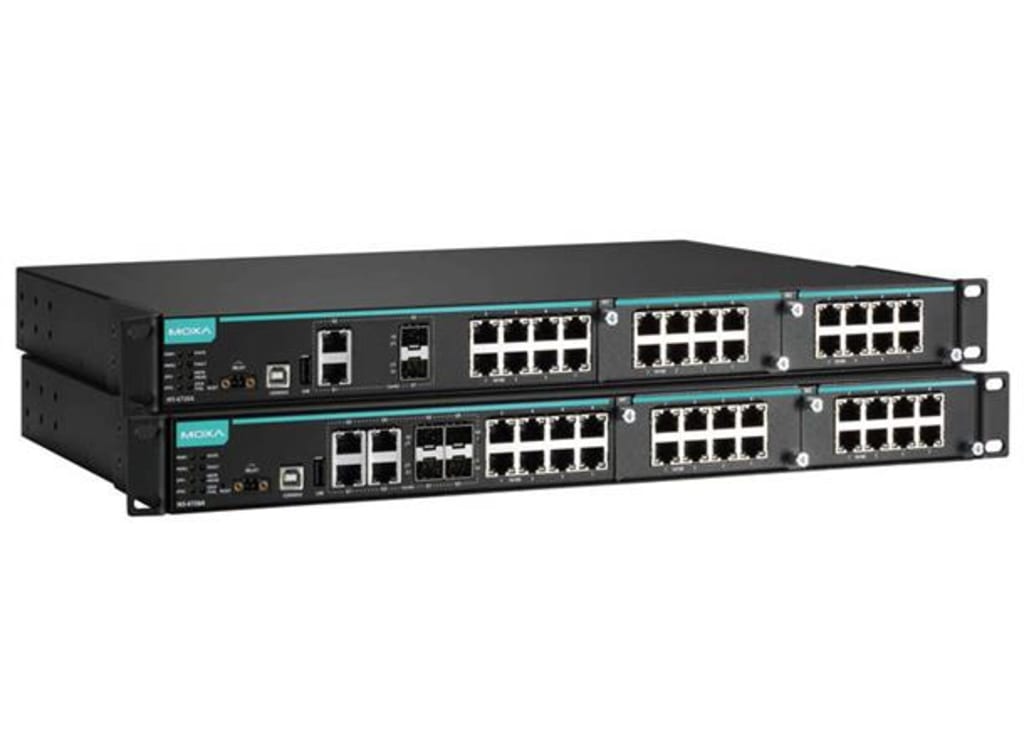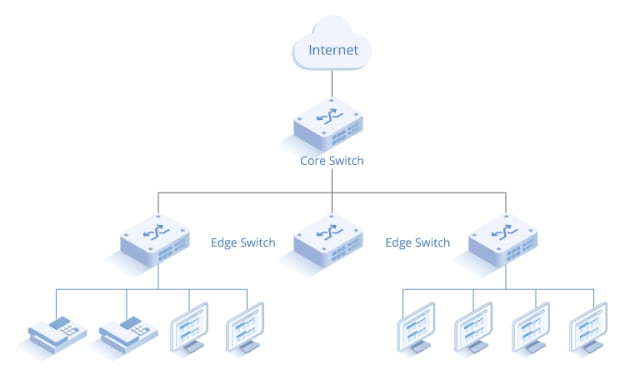
In the dynamic realm of networking, the choice between modular and non-modular switches plays a pivotal role in determining the scalability, flexibility, and maintenance of a network infrastructure. This comprehensive guide aims to elucidate the key distinctions between modular and non-modular switches, providing insights into their functionalities, advantages, and considerations for users looking to make informed decisions about their networking setups.
Understanding Modular Switches
Definition and Core Functionality
Modular switches are characterized by their modular architecture, allowing users to customize and expand the switch based on specific requirements. This section explores the modular switch's ability to accommodate interchangeable components, such as expansion modules and power supplies, enabling scalability and adaptability.
Advantages of Modular Switches
The benefits of modular switches lie in their flexibility and scalability. Users have the ability to tailor the switch to meet evolving network needs, adding or upgrading components as necessary. This part delves into the advantages of modular switches for businesses and enterprises with dynamic and growing networking demands.
Understanding Non-Modular Switches
Definition and Core Functionality
Non-modular switches, in contrast, have a fixed configuration, with a set number of ports and features. This section explores the straightforward design of non-modular switches, highlighting their simplicity and cost-effectiveness for smaller networks with stable requirements.
Advantages of Non-Modular Switches
Non-modular switches excel in simplicity and ease of use. This part of the guide outlines the advantages of non-modular switches, emphasizing their reliability, lower initial cost, and straightforward deployment, making them ideal for smaller organizations or specific network setups.
Factors Influencing the Choice
Scalability Requirements
One of the primary considerations when choosing between modular and non-modular switches is the scalability requirements of the network. This section guides users in assessing their current and future needs, helping them determine which switch type aligns with their growth expectations.
Budget Considerations
Budget considerations play a significant role in the decision-making process. This part of the guide explores how the initial cost, as well as long-term scalability costs, can influence the choice between modular and non-modular switches.
Installation and Maintenance
Ease of Installation
The ease of installation varies between modular and non-modular switches. This section provides insights into the installation processes for both types, helping users understand the time and effort required for deployment.
Maintenance and Upgrades
Ongoing maintenance and the ability to perform upgrades are crucial aspects of switch management. This part of the guide details how modular switches offer advantages in terms of ease of maintenance and the ability to upgrade specific components without replacing the entire switch.
Power and Resource Allocation
Dynamic Power Distribution in Modular Switches
Modular switches often provide dynamic power distribution capabilities, allowing users to allocate power selectively to different modules based on the network's demands. This section details how this feature enhances energy efficiency and optimizes resource utilization.
Fixed Power Allocation in Non-Modular Switches
Conversely, non-modular switches typically have a fixed power allocation for their predetermined configuration. This part explores how this simplicity in power management impacts energy consumption and resource allocation in non-modular setups.
Future-Proofing Network Investments
Adapting to Evolving Technologies with Modular Switches
Modular switches are known for their adaptability to emerging technologies. This section explores how the modularity of these switches allows for easy integration of new modules and functionalities, future-proofing network investments.
Stability and Reliability in Non-Modular Switches for Stable Environments
Non-modular switches, while less adaptable to emerging technologies, are valued for their stability. This part discusses how non-modular switches provide a reliable foundation for stable networking environments where frequent changes are unnecessary.
These additional headings provide a more detailed exploration of various aspects differentiating modular and non-modular switches. Feel free to let me know if there are specific aspects you'd like to delve deeper into or if you have any other preferences.
Modular and Non-Modular Switches: A Brief Overview
Modular switches offer unparalleled flexibility with customizable components, making them ideal for scalable and dynamic network infrastructures. In contrast, non-modular switches provide simplicity and cost-effectiveness for smaller networks with stable requirements. Understanding the distinctions between these two types of switches is crucial for making informed decisions about network design and scalability.
Your Digital Solution Destination
Within the expansive landscape of computing solutions, Computing Worlds stands out as a premier destination for cutting-edge technology. With a commitment to innovation and customer satisfaction, Computing Worlds curates a diverse selection of networking equipment, including modular and non-modular switches, providing users with top-tier solutions tailored to their unique networking needs.
Why Select Computing Worlds?
Opting for Computing Worlds ensures access to a carefully curated collection of networking devices, including a variety of switches to suit different requirements. With a focus on quality, innovation, and personalized service, Computing Worlds establishes itself as a reliable partner for those seeking advanced and reliable networking solutions.
About the Creator
Eva Adams
Writer || Social Writer || Copy Writer






Comments
There are no comments for this story
Be the first to respond and start the conversation.